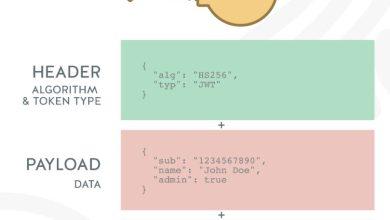
As organizations increasingly adopt containerized workloads to streamline application deployment and management, container orchestration platforms like Kubernetes have gained popularity. However, managing these platforms can be complex and time-consuming, driving organizations to seek simpler solutions. Enter Azure Container Instances, Microsoft’s serverless compute platform for running Docker containers.
With Azure Container Instances, organizations can focus on their applications rather than managing VM infrastructure. In this article, we’ll explore how Azure Container Instances simplify workload management, how they integrate with other Azure services, and how they enable organizations to leverage the power of cloud-native applications. We’ll also discuss how to use Azure Container Instances with Kubernetes and how they contribute to operational efficiency.
Key Takeaways:
- Azure Container Instances provide a simple and efficient solution for running Docker containers without managing VM infrastructure.
- Container orchestration platforms like Kubernetes can be complex and time-consuming to manage, making Azure Container Instances an attractive alternative.
- Azure Container Instances enable organizations to leverage the power of cloud-native applications and provide the necessary infrastructure and resources.
- Azure Container Instances can be seamlessly integrated with other Azure services for seamless deployment and scaling.
- Serverless computing with Azure Container Instances can contribute to operational efficiency by reducing management overhead, increasing scalability, and reducing costs.
What are Azure Container Instances?
Azure Container Instances (ACI) is a serverless computing solution from Microsoft that simplifies the process of deploying and managing containers. It allows you to run Docker containers without the need to manage the underlying virtual machine infrastructure. ACI provides a fast and secure way to run containers, making it ideal for containerized workloads.
With ACI, you can run a single container or multiple containers in a group. You can also choose to deploy containers directly from your favorite container registry such as Docker Hub or Azure Container Registry. ACI provides auto-scaling capabilities out-of-the-box, allowing you to scale your container instances up or down based on demand.
ACI integrates seamlessly with other Azure services, making it easier to deploy and manage your containerized applications. For example, you can use Azure DevOps to automate the deployment of your containers, or Azure Monitor to collect and analyze metrics and logs from your container instances.
Simplifying Workload Management with Azure Container Instances
Azure Container Instances offer a simplified approach to managing containerized workloads. By removing the need to manage infrastructure and providing instant and isolated container workloads, Azure Container Instances significantly reduce management overhead while increasing flexibility. Organizations can easily deploy and manage containerized applications with Azure Container Instances, thanks to the streamlined process that enables quick scaling.
Container management is made more accessible with Azure’s powerful features and tools. With Azure Container Instances, organizations can quickly and efficiently scale container resources while monitoring performance and availability. Azure Container Instances also offer container restart policies and a fully-managed platform that minimizes the risk of downtime related to management errors. These features make Azure Container Instances a preferred option for container management.
The simplicity of Azure Container Instances does not mean a lack of functionality. Organizations can still take advantage of advanced container management tools such as volume mounting and network integration with Azure Container Instances. Furthermore, Azure Container Instances provide a seamless integration with other Azure services, such as Azure Virtual Network, Azure DNS, and Azure Load Balancer, making the deployment of containerized workloads even more straightforward.
Leveraging the Power of Cloud-Native Applications with Azure Container Instances
Cloud-native applications have emerged as the go-to solution for modernizing and scaling enterprise applications. They are built using microservices architecture, which breaks down applications into smaller, independent components, making them more resilient, scalable, and easier to manage.
Azure Container Instances (ACI) provide an optimal environment for building and deploying cloud-native applications. They offer an agile platform that can host any containerized workload, including cloud-native applications. ACI provides the necessary infrastructure and resources to build and deploy these applications quickly and efficiently.
One of the significant advantages of cloud-native applications is their portability. They can run seamlessly on any platform, be it on-premises or a public cloud. ACI facilitates this portability by offering a simplified container orchestration service. ACI is a serverless computing solution, meaning that organizations can develop and deploy cloud-native applications without worrying about managing any underlying infrastructure.
The scalability offered by ACI is also a significant advantage for organizations building and deploying cloud-native applications. ACI can quickly scale instances up or down, depending on the workload demand, allowing organizations to pay only for what they use.
By leveraging the power of cloud-native applications with Azure Container Instances, organizations can unlock a range of benefits, including flexibility, scalability, and portability. ACI provides the necessary infrastructure and resources to build and deploy cloud-native applications quickly and efficiently. It offers seamless container orchestration, portability, and scalability, making it an ideal platform for modernizing enterprise applications.
Integrating Azure Container Instances with Kubernetes
One of the key benefits of Azure Container Instances is its seamless integration with Kubernetes, a popular container orchestration platform. By combining the power and flexibility of Kubernetes with the simplicity and ease of use of Azure Container Instances, organizations can achieve optimal container management.
Deploying containers with Kubernetes can be complex and require significant resources. However, by leveraging Azure Container Instances, organizations can reduce the management overhead and costs associated with managing a Kubernetes cluster. With Azure Container Instances, Kubernetes users can directly deploy and manage containers with minimal effort.
Azure Container Instances supports container groups, which are ideal for Kubernetes workloads. Container groups provide instant and isolated container workloads, which can be easily scaled up or down to meet demand. Organizations can also benefit from the ability to run containers in a serverless computing environment, further enhancing efficiency and cost-effectiveness.
By integrating Azure Container Instances with Kubernetes, organizations can simplify container management, increase flexibility, and improve scalability. They can also take advantage of the many other benefits offered by Azure Container Instances, such as seamless deployment and integration with other Azure services.
Conclusion
Azure Container Instances’ integration with Kubernetes provides a powerful solution for managing container workloads. By leveraging these technologies together, organizations can achieve optimal container management and take advantage of the many benefits offered by both platforms.
Boosting Operational Efficiency with Azure Container Instances
Operational efficiency is essential for any organization looking to stay competitive in today’s fast-paced business landscape. Azure Container Instances can help organizations achieve operational efficiency by providing instant and isolated container workloads without the need for managing VM infrastructure. This makes it an excellent option for organizations looking to adopt serverless computing.
With Azure Container Instances, organizations can benefit from reduced management overhead, cost-effectiveness, and scalability. Instead of having to manage server infrastructure, organizations can focus on developing and deploying their applications.
Furthermore, Azure Container Instances can help organizations reduce costs by allowing them to pay only for the resources they use. Since Azure Container Instances are billed on a per-second basis, organizations can save money by optimizing resource utilization.
Another benefit of using Azure Container Instances for serverless workloads is the ease of deployment and management. Organizations can quickly and easily deploy and manage their containers using Azure Container Instances, saving time and effort.
Azure Container Instances also provide features and tools that enhance operational efficiency, such as auto-scaling and load balancing. These features can help organizations to ensure that their applications are always available and performant.
In summary, Azure Container Instances can help organizations achieve operational efficiency by simplifying workload management and providing the necessary infrastructure and resources for serverless computing. With reduced management overhead, cost-effectiveness, and scalability benefits, Azure Container Instances are an excellent choice for organizations looking to optimize their operations.
Conclusion
In conclusion, Azure Container Instances are an excellent solution for simplifying workload management. They provide a seamless infrastructure for containerized workloads, cloud-native applications, and serverless computing. With Azure Container Instances, deploying and managing containers has never been easier or more cost-effective.
By leveraging the power of Azure Container Instances, organizations can achieve greater operational efficiency and reduce management overhead. The built-in features and tools offered by Azure make it easy to deploy and scale containers while maintaining security and compliance.
Overall, Azure Container Instances are a game-changer for container management. Their simplicity, flexibility, and scalability make them the perfect solution for any organization looking to simplify their workload management. So, if you’re looking for a way to streamline your container management and boost operational efficiency, look no further than Azure Container Instances.
FAQ
Q: What are Azure Container Instances?
A: Azure Container Instances are a service provided by Azure that allow you to deploy and run containers without the need to manage VM infrastructure. They provide instant and isolated container workloads, making it easier to run applications in the cloud.
Q: How do Azure Container Instances simplify workload management?
A: Azure Container Instances simplify workload management by streamlining the deployment and management of containerized workloads. They offer a simple and efficient way to deploy and scale containers, making it easier to manage your applications in the cloud.
Q: Can I integrate Azure Container Instances with Kubernetes?
A: Yes, Azure Container Instances can be integrated with Kubernetes, a popular container orchestration platform. This integration allows you to leverage the power of Kubernetes while benefiting from the simplicity and ease of use offered by Azure Container Instances.
Q: How do Azure Container Instances contribute to operational efficiency?
A: Azure Container Instances contribute to operational efficiency by providing a serverless computing model. This means that you only pay for the containers you run, without needing to worry about managing the underlying infrastructure. This not only reduces costs but also allows for quick scalability and reduced management overhead.






